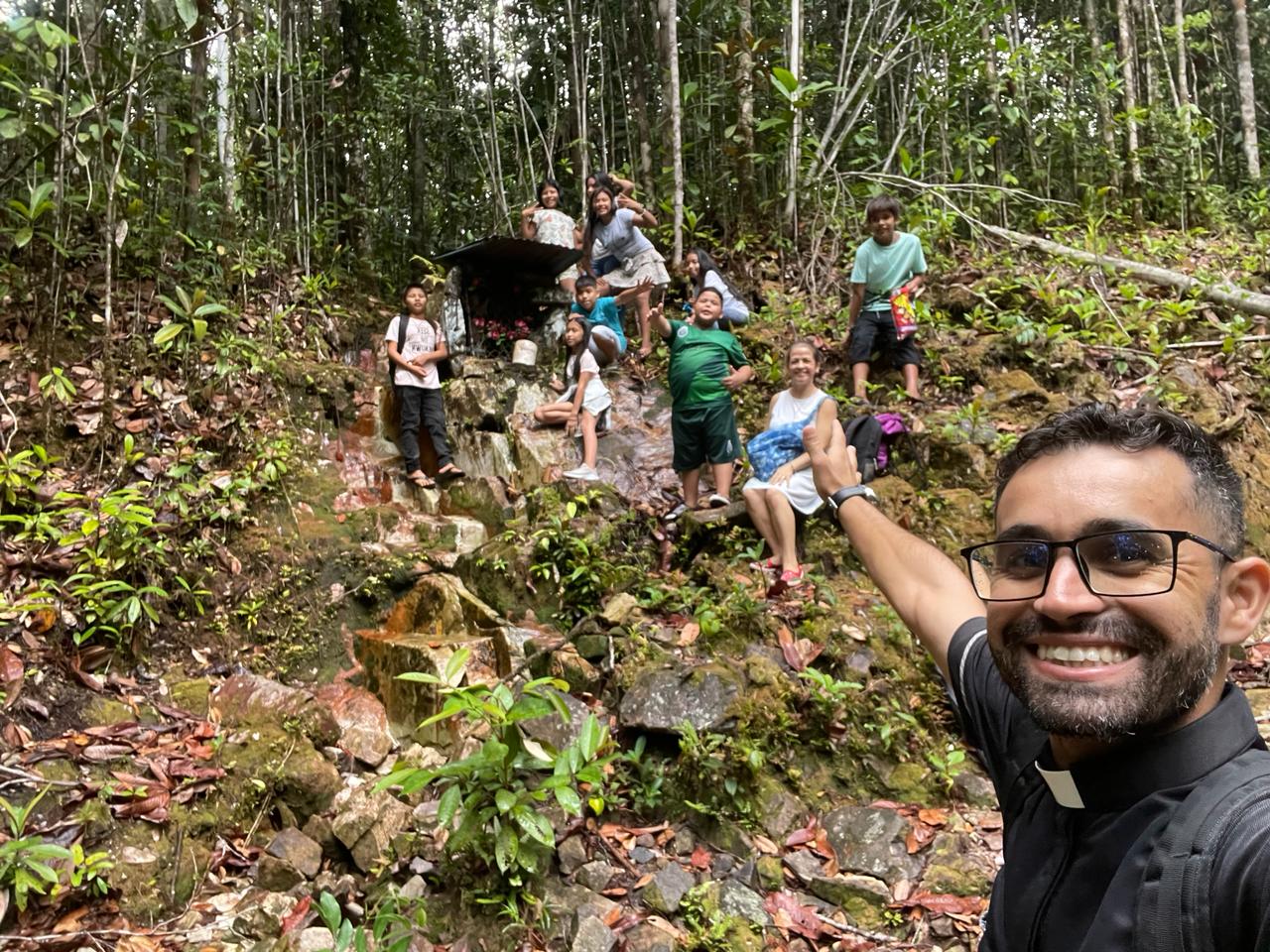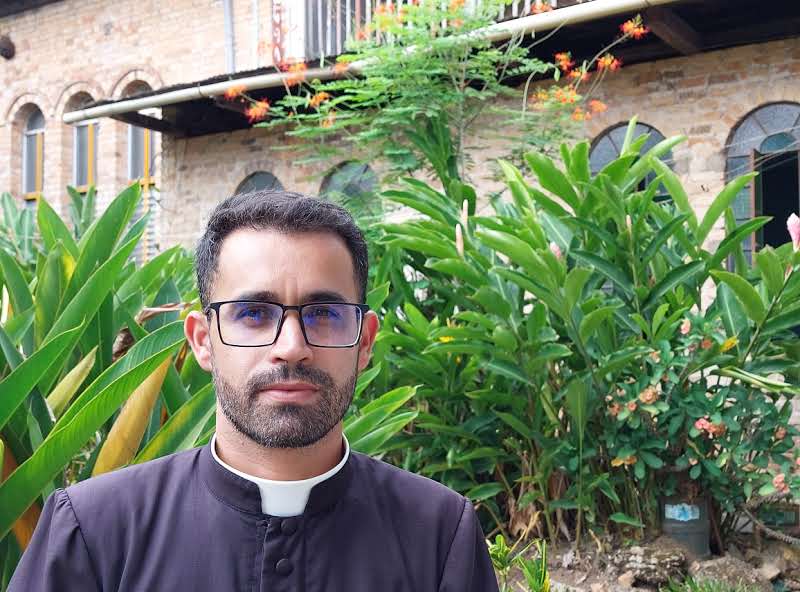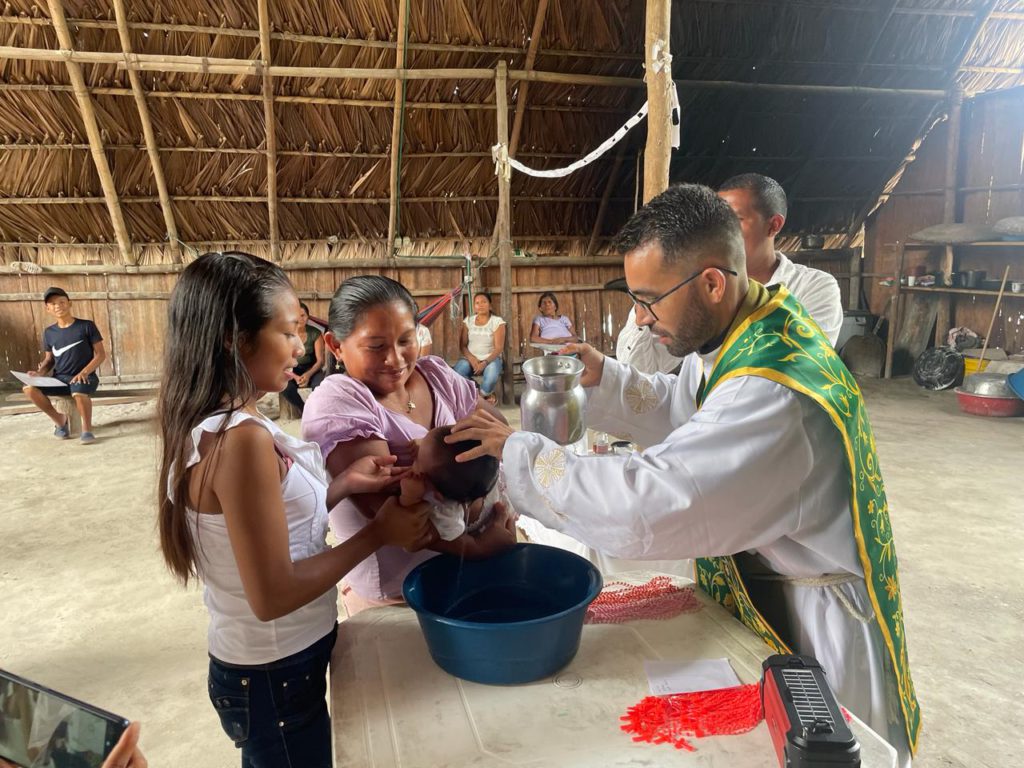A young priest speaks of the challenges and joys in bringing the sacraments to the most isolated communities in the Colombian Amazon.
Father Jonathas Fernandes is only 33, but he already has an impressive resume as a missionary. He was only a child, in his native Brazil, when he felt a calling to the priesthood: “I felt an attraction to detachment, poverty and mission.” During a vocational experience he discovered the Apostolic Vicariate of Mitú, in the Colombian Amazon, on the border with Brazil. Although he was only ordained six years ago, it has been nine years since he moved to Mitú, where he completed his formation and was ordained.
Mitú is a tough place, unknown to even most Colombians. It is covered in dense forest, plagued with tropical diseases, snakes and other poisonous animals, not to mention perilous rivers and waterfalls. However, despite all these challenges, the Church has been in the region for 100 years.

Some of the parishes in Mitú are very isolated. Father Johanthan will soon be moving to the Parish of Our Lady of the Carmel, but for several years, he has been posted to the Parish of Our Lady of Fátima, where he is almost fully isolated from the rest of the world. Months often go by without him being in touch with the outside. He travels to the headquarters of the vicariate every six months to collect supplies, fuel for his boat and all the liturgical material, such as hosts, Bibles and other catechetical materials. The problem is that this distance can only be covered in a single-engine aircraft, with a maximum capacity of only 500 kg, including the pilot and passengers. “I have to watch the consumption of my fuel and supplies very carefully, or I might end up with nothing”, he tells Aid to the Church in Need (ACN).
Visits to the different communities are yet another challenge. “There are 16 communities, each of which is about four hours away by boat. But there is one which is a seven-day journey by boat.” The distance means that he only manages to visit every one or two years. When he does, he sometimes has to do 10 baptisms in a single day, because he simply cannot make it back more often.
The Mitú region is home to 26 different indigenous groups, who each have their own language and traditions. Practically all the communities have had some contact with Catholicism, and even the ones that haven’t accepted baptism welcome the missionaries as friends when they visit. However, Father Jonathas explains that “in the 80s and 90s, when we didn’t have many missionaries here – in fact we still don’t – other Christian denominations, such as Protestants, established themselves here.”

During his visits, Father Jonathas found it interesting to note that despite all the different ethnicities, there were some words common to all. One example is “paí”, which is how the people refer to priests. “Paí means ‘little God’, which is what they endearingly call us”, Father Jonathas explains. All of this love for the priest is displayed each time a child is baptised, as many will wait for the priest to arrive before baptising their children.
Father Jonathas says people often ask him why he stays, especially when he has to undergo months with no contact with the outside world, either because there is no internet in the area, or because of long periods with no electricity. His answer, he says, is simple. “The joy of seeing a brother receive baptism after waiting for so long, or of a brother participating in catechism, or receiving First Communion… It’s like walking to Heaven together! And that brings a joy that cannot be explained.”
Father Jonathas’ adventure of faith would not have been possible without outside support. As with many missionaries in the Amazon region, he is grateful for all the help he gets from ACN. “All the help we receive here comes from outside, it is those people who sustain the mission in the Amazon Rainforest. This allows us to train new catechists, who nourish the faith of the people when the priest cannot be around. The help we get from ACN benefactors is crucial to keeping the mission alive here in Mitú!”
Father Jonathas’ life as a missionary in the Amazon flows on like a river, with moments of tranquillity, but also time in the rapids, with beauty and with danger. Every day, he says, he gives thanks for never having gotten into too much trouble: “We have to deal with waterfalls, and drag the boat over rocks when the water gets too shallow. Others haven’t had such luck and found themselves in great danger when their boats capsized.” Now, the young priest is heading to a new mission, in the Parish of Our Lady of the Carmel, also in Mitú, which is “only” four hours by boat from the headquarters of the Vicariate, and where new joys and challenges await.


